Govt. reaches 100 day mark
Prime Minister Mirko Cvetković’s cabinet has survived its first 100 days in office, and at midday the PM presented the results of the government’s work.
Tuesday, 14.10.2008.
09:38

Prime Minister Mirko Cvetkovic’s cabinet has survived its first 100 days in office, and at midday the PM presented the results of the government’s work. He addressed the reporters in Belgrade stating that European integrations had been resumed, "the biggest diplomatic success in the fight for Kosovo" achieved and the fight against corruption continued, Beta news agency reported. Govt. reaches 100 day mark Cvetkovic said that his cabinet's main goal was continuing European integrations, adding that the Serbian parliament had ratified the Stabilization and Association Agreement with the European Union very quickly. The prime minister described the UN General Assembly's adoption of the resolution on seeking an advisory opinion from the International Court of Justice on the legality of Kosovo's proclamation of independence as "one of the biggest diplomatic successes in the last decades." The prime minister said the resolution would not go into accelerated but regular procedure, so that the entire process could last several years. Cvetkovic also listed the signing of a contract with Fiat, intensifying works on Corridor 10, increasing pensions by ten percent and continuing cooperation with the Hague Tribunal, among "government victories". He added that the government "intends to complete cooperation" with that the Hague court. At the next session, he said, the government will make a decision on applying the interim trade agreement with the EU, which envisages the gradual abolishing of customs on the import of goods from the EU into Serbia. The prime minister repeated that Serbia would accept EULEX in Kosovo only if that mission did not operate on the principles set by UN special envoy Martti Ahtisaari, that is, if it operated under Resolution 1244 and was approved by the U.N. Security Council. He stated that Serbia would not introduce sanctions against Montenegro over its recognition of Kosovo's independence According to Cvetkovic, Serbia will most probably make a new arrangement with the International Monetary Fund, whose experts will take part in preparing Serbia's budget for 2009. Earlier in the day, Cvetkovic said that he rated the government’s work very highly, that it was working as a team, and that decisions were being taken unanimously. The opposition, however, disagrees. “A good atmosphere has developed within the government, teamwork, decisions are taken unanimously,“ the prime minister told a press conference. The government’s biggest accomplishment, he said, had been the ratification of the Stabilization and Association Agreement with the EU, the gas deal with Russia, the Fiat agreement, obtaining the funds for construction of Corridor 10, increasing pensions by 10 percent, and the 2008 budget review. Cvetkovic expects implementation of the gas part of the energy arrangement with Russia to begin by the end of the year. The prime minister added that following a subsequent review, the International Court of Justice would not be considering the legality of Kosovo’s independence declaration in urgent procedure. Justice Minister Snezana Malovic said that her ministry’s biggest achievement thus far had been the fact that six laws vital for EU integration were now on the parliamentary agenda. “At the same time, the agenda also features laws that will enable a more effective clampdown on organized crime and corruption,“ Malovic told journalists at the parliament building. She added that it was important that a normative framework for data protection was being developed, regulating that area for the first time, and which envisaged the creation of a supervisory watchdog to control the process. However, the average mark that the government received from the opposition was just 1.5/5. Analysts believe that the government is stable and that certain projects are on hold because of the ongoing economic crisis in the world, but also because of obstruction to parliament’s work. The ruling Democratic Party's (DS) former coalition partners in the last government, the Democratic Party of Serbia (DSS), cannot find any area in which the government deserves even pass marks. DSS MP Slobodan Samardzic criticizes above all, what he calls, the excessive reaction to Montenegro’s recognition of Kosovo independence. “We cannot give a positive mark for the first 100 days. On the contrary, our appraisal is negative. There are a lot of international and internal political, economic, institutional and other indicators. It seems as if, during these 100 days, the government has lengthened its neck like some sort of giraffe, in order to better peer into the future, while neglecting what’s going on around it,“ says Samardzic. The Liberal Democratic Party (LDP) is also critical of the government’s record in the first quarter, although the party has, on occasion, supported its bills in parliament. LDP MP Zoran Ostojic says the government’s biggest failure thus far has been its inability to get the Interim Agreement with the EU unfrozen. “A ’2’ for the agreement and the fact that the very formation of the government prevented [Vojislav] Kostunica staying in power, but it’s not enough. The very fact that a government was formed is some sort of success, but it’s unlikely that anyone who sees their future and that of their families and country in the EU can be satisfied with it,“ says Ostojic. Weekly NIN journalist Dragan Bujosevic says that 100 days is too short a time period for anything substantive to be achieved. Nevertheless, the fact, for example, that a number of public enterprises remain without a director, Bujosevic sees as a sign of discord within the government. “I can’t say that the government has shown much enthusiasm in its work. It has to persuade people that its breaking its own back, working 24 hours a day. On the other hand, I don’t consider it a great failure that the Stabilization and Association (SAA) is still on some kind of ice, as I think it’s still being implemented, and I think that the government has done all it could to get that agreement up and running,“ he said. Economic analyst Vuk Djokovic highlights the arrival of big investors as a positive achievement. He explains that the problems are more connected to parliament’s work, as the government has shown an exemplary level of unity over key problems. “What has completely overshadowed these impressive first 100 days is what’s going on in the world, the looming recession, the financial crisis, which will undoubtedly reflect on our country. I think the government’s work in the first 100 days has been of a high level, and I think that the budget will be kept under control. However, that positive progress we’ve had linked to stability will be nullified as we’ll have a considerable stagnation in growth coming from abroad,“ said Djokovic. Although the report from Cvetkovic’s cabinet will be published during the day, it is not diffcult to predict what will be highlighted as successes by certain ministries. Ministers cite as their greatest accomplishment the arrest of Radovan Karadzic, the adoption of the Serbian resolution on Kosovo in the UN General Assembly, and the conclusion of the Fiat deal. Cvetkovic addresses reporters on Tuesday (Tanjug)
Govt. reaches 100 day mark
Cvetković said that his cabinet's main goal was continuing European integrations, adding that the Serbian parliament had ratified the Stabilization and Association Agreement with the European Union very quickly.The prime minister described the UN General Assembly's adoption of the resolution on seeking an advisory opinion from the International Court of Justice on the legality of Kosovo's proclamation of independence as "one of the biggest diplomatic successes in the last decades."
The prime minister said the resolution would not go into accelerated but regular procedure, so that the entire process could last several years.
Cvetković also listed the signing of a contract with Fiat, intensifying works on Corridor 10, increasing pensions by ten percent and continuing cooperation with the Hague Tribunal, among "government victories".
He added that the government "intends to complete cooperation" with that the Hague court.
At the next session, he said, the government will make a decision on applying the interim trade agreement with the EU, which envisages the gradual abolishing of customs on the import of goods from the EU into Serbia.
The prime minister repeated that Serbia would accept EULEX in Kosovo only if that mission did not operate on the principles set by UN special envoy Martti Ahtisaari, that is, if it operated under Resolution 1244 and was approved by the U.N. Security Council.
He stated that Serbia would not introduce sanctions against Montenegro over its recognition of Kosovo's independence
According to Cvetković, Serbia will most probably make a new arrangement with the International Monetary Fund, whose experts will take part in preparing Serbia's budget for 2009.
Earlier in the day, Cvetković said that he rated the government’s work very highly, that it was working as a team, and that decisions were being taken unanimously. The opposition, however, disagrees.
“A good atmosphere has developed within the government, teamwork, decisions are taken unanimously,“ the prime minister told a press conference.
The government’s biggest accomplishment, he said, had been the ratification of the Stabilization and Association Agreement with the EU, the gas deal with Russia, the Fiat agreement, obtaining the funds for construction of Corridor 10, increasing pensions by 10 percent, and the 2008 budget review.
Cvetković expects implementation of the gas part of the energy arrangement with Russia to begin by the end of the year.
The prime minister added that following a subsequent review, the International Court of Justice would not be considering the legality of Kosovo’s independence declaration in urgent procedure.
Justice Minister Snežana Malović said that her ministry’s biggest achievement thus far had been the fact that six laws vital for EU integration were now on the parliamentary agenda.
“At the same time, the agenda also features laws that will enable a more effective clampdown on organized crime and corruption,“ Malović told journalists at the parliament building.
She added that it was important that a normative framework for data protection was being developed, regulating that area for the first time, and which envisaged the creation of a supervisory watchdog to control the process.
However, the average mark that the government received from the opposition was just 1.5/5. Analysts believe that the government is stable and that certain projects are on hold because of the ongoing economic crisis in the world, but also because of obstruction to parliament’s work.
The ruling Democratic Party's (DS) former coalition partners in the last government, the Democratic Party of Serbia (DSS), cannot find any area in which the government deserves even pass marks.
DSS MP Slobodan Samardžić criticizes above all, what he calls, the excessive reaction to Montenegro’s recognition of Kosovo independence.
“We cannot give a positive mark for the first 100 days. On the contrary, our appraisal is negative. There are a lot of international and internal political, economic, institutional and other indicators. It seems as if, during these 100 days, the government has lengthened its neck like some sort of giraffe, in order to better peer into the future, while neglecting what’s going on around it,“ says Samardžić.
The Liberal Democratic Party (LDP) is also critical of the government’s record in the first quarter, although the party has, on occasion, supported its bills in parliament.
LDP MP Zoran Ostojić says the government’s biggest failure thus far has been its inability to get the Interim Agreement with the EU unfrozen.
“A ’2’ for the agreement and the fact that the very formation of the government prevented [Vojislav] Koštunica staying in power, but it’s not enough. The very fact that a government was formed is some sort of success, but it’s unlikely that anyone who sees their future and that of their families and country in the EU can be satisfied with it,“ says Ostojić.
Weekly NIN journalist Dragan Bujošević says that 100 days is too short a time period for anything substantive to be achieved.
Nevertheless, the fact, for example, that a number of public enterprises remain without a director, Bujošević sees as a sign of discord within the government.
“I can’t say that the government has shown much enthusiasm in its work. It has to persuade people that its breaking its own back, working 24 hours a day. On the other hand, I don’t consider it a great failure that the Stabilization and Association (SAA) is still on some kind of ice, as I think it’s still being implemented, and I think that the government has done all it could to get that agreement up and running,“ he said.
Economic analyst Vuk Đoković highlights the arrival of big investors as a positive achievement.
He explains that the problems are more connected to parliament’s work, as the government has shown an exemplary level of unity over key problems.
“What has completely overshadowed these impressive first 100 days is what’s going on in the world, the looming recession, the financial crisis, which will undoubtedly reflect on our country. I think the government’s work in the first 100 days has been of a high level, and I think that the budget will be kept under control. However, that positive progress we’ve had linked to stability will be nullified as we’ll have a considerable stagnation in growth coming from abroad,“ said Đoković.
Although the report from Cvetković’s cabinet will be published during the day, it is not diffcult to predict what will be highlighted as successes by certain ministries. Ministers cite as their greatest accomplishment the arrest of Radovan Karadžić, the adoption of the Serbian resolution on Kosovo in the UN General Assembly, and the conclusion of the Fiat deal.













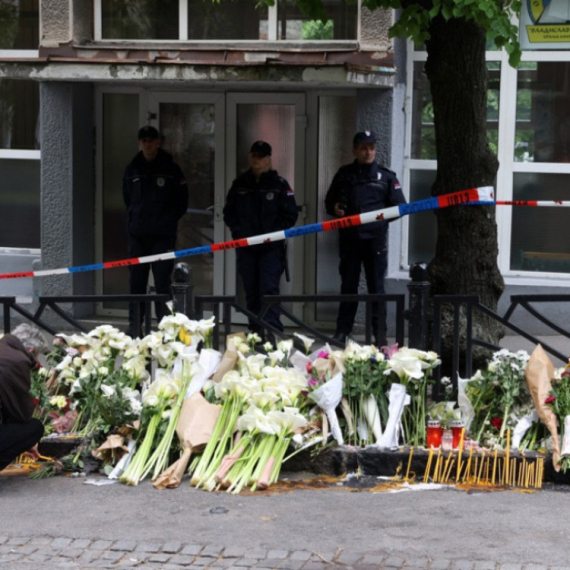
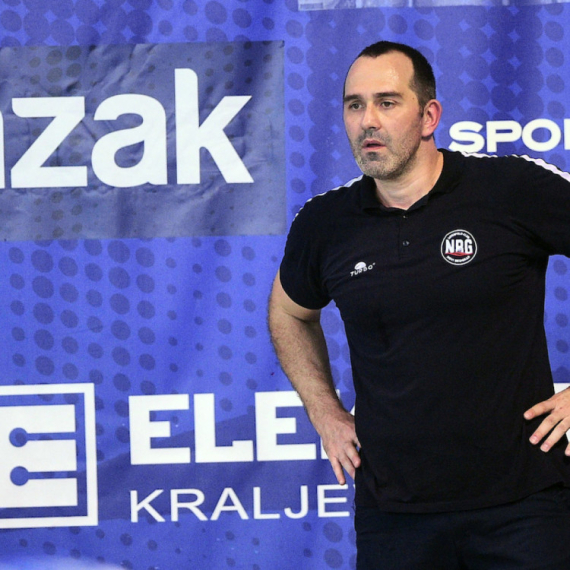
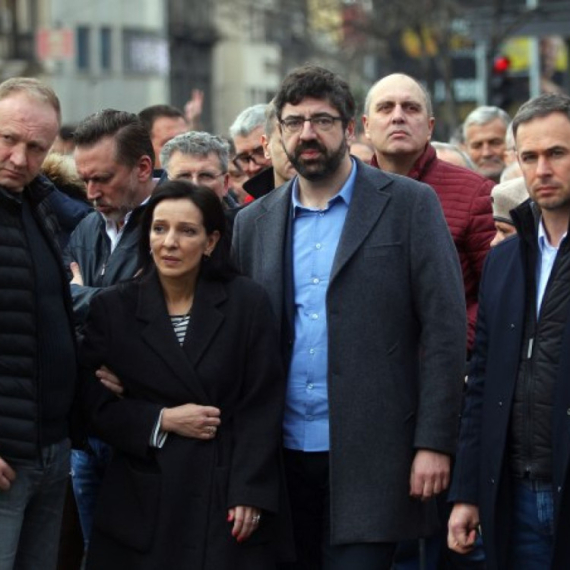
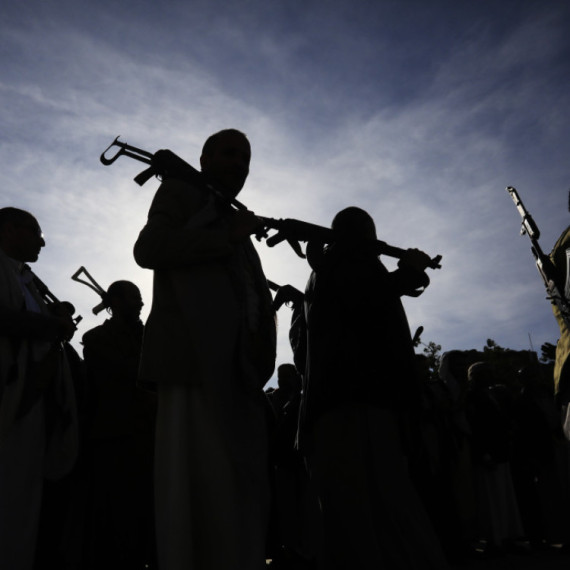

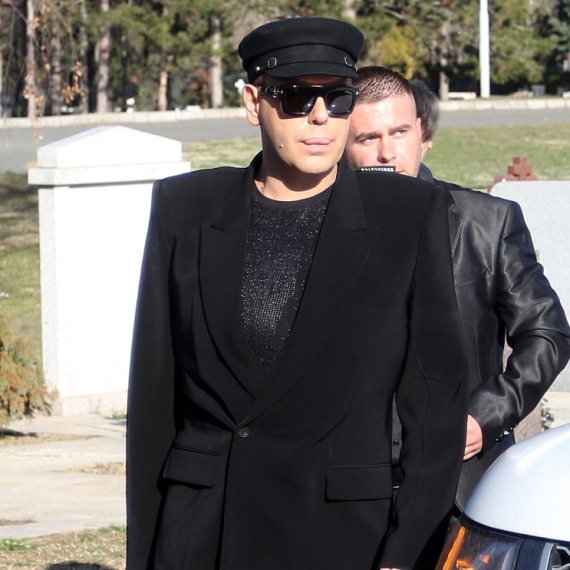































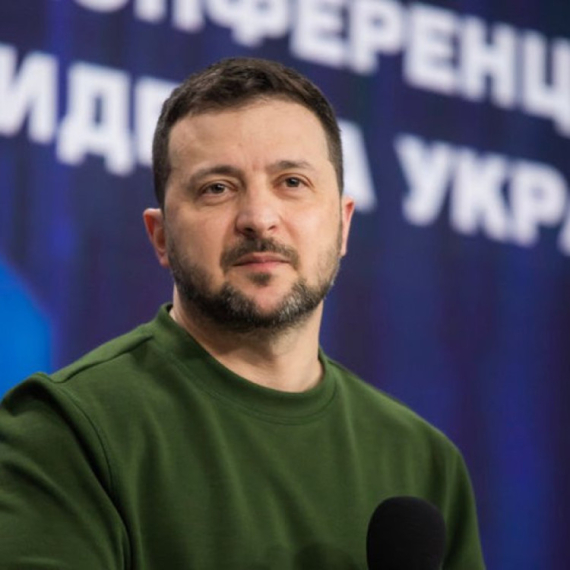


Komentari 2
Pogledaj komentare